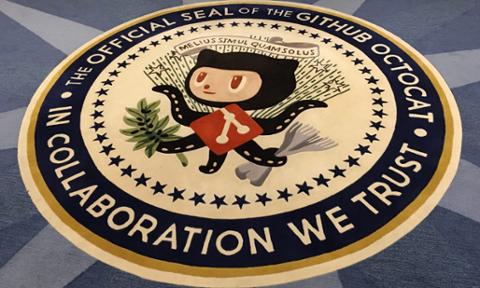[caption id="attachment_140550" align="aligncenter" width="3980"]

GitHub Offices[/caption] Open-source software drives much of tech, but still has a diversity problem. In its 2017 developer
survey, GitHub notes that only about three percent of respondents identify as female, and a lot of contributors have witnessed some rough behavior online. Surveying over 5,500 developers, GitHub found that 95 percent were male, and one percent identify as non-binary. Seven percent say they are lesbian, gay, bisexual, asexual, or another minority sexual orientation. Some 26 percent are immigrants, and 16 percent are “are members of ethnic or national minorities in the country where they currently live.” From there, GitHub notes how we treat each other online, and the results are startling. While 15 percent of males report “unwelcoming” language, 25 percent of women report the same. Stereotyping is also a problem; 2 percent of men say they’ve been pigeonholed, but 12 percent of women say the same. As you may expect, twice as many women as men (six percent to three percent) report unwelcome sexual advances via open source communities.

Negativity also affects open source projects; 21 percent of those who say they witnessed rude behavior in an open source project say they stopped contributing to it afterward, and eight percent say they channeled their efforts via more private channels. Another 45 percent of respondents say they’ve witnessed “rudeness,” while 15 percent say they’ve been the subject of it. Nearly 20 percent have seen name-calling, and about 12 percent say they’ve seen “serious incidents” happen via open source projects. This all stands in contrast to what open source contributors want, too. When asked what was most important to them when considering open source projects, a majority report “responsive maintainers” as important to a project, with a “welcoming community” just as desirable. Interestingly enough, the categories of “welcoming community” and “code of conduct” were among the most disparate along gender lines, with women desiring both far more than their male counterparts. GitHub states: “Half of contributors say that their open source work was somewhat or very important in getting their current role.” That leaves the other half contributing out of a sense of responsibility or just being good stewards of tech. To that, being better to one another is key to driving projects forward.
 GitHub Offices[/caption] Open-source software drives much of tech, but still has a diversity problem. In its 2017 developer survey, GitHub notes that only about three percent of respondents identify as female, and a lot of contributors have witnessed some rough behavior online. Surveying over 5,500 developers, GitHub found that 95 percent were male, and one percent identify as non-binary. Seven percent say they are lesbian, gay, bisexual, asexual, or another minority sexual orientation. Some 26 percent are immigrants, and 16 percent are “are members of ethnic or national minorities in the country where they currently live.” From there, GitHub notes how we treat each other online, and the results are startling. While 15 percent of males report “unwelcoming” language, 25 percent of women report the same. Stereotyping is also a problem; 2 percent of men say they’ve been pigeonholed, but 12 percent of women say the same. As you may expect, twice as many women as men (six percent to three percent) report unwelcome sexual advances via open source communities.
GitHub Offices[/caption] Open-source software drives much of tech, but still has a diversity problem. In its 2017 developer survey, GitHub notes that only about three percent of respondents identify as female, and a lot of contributors have witnessed some rough behavior online. Surveying over 5,500 developers, GitHub found that 95 percent were male, and one percent identify as non-binary. Seven percent say they are lesbian, gay, bisexual, asexual, or another minority sexual orientation. Some 26 percent are immigrants, and 16 percent are “are members of ethnic or national minorities in the country where they currently live.” From there, GitHub notes how we treat each other online, and the results are startling. While 15 percent of males report “unwelcoming” language, 25 percent of women report the same. Stereotyping is also a problem; 2 percent of men say they’ve been pigeonholed, but 12 percent of women say the same. As you may expect, twice as many women as men (six percent to three percent) report unwelcome sexual advances via open source communities.  Negativity also affects open source projects; 21 percent of those who say they witnessed rude behavior in an open source project say they stopped contributing to it afterward, and eight percent say they channeled their efforts via more private channels. Another 45 percent of respondents say they’ve witnessed “rudeness,” while 15 percent say they’ve been the subject of it. Nearly 20 percent have seen name-calling, and about 12 percent say they’ve seen “serious incidents” happen via open source projects. This all stands in contrast to what open source contributors want, too. When asked what was most important to them when considering open source projects, a majority report “responsive maintainers” as important to a project, with a “welcoming community” just as desirable. Interestingly enough, the categories of “welcoming community” and “code of conduct” were among the most disparate along gender lines, with women desiring both far more than their male counterparts. GitHub states: “Half of contributors say that their open source work was somewhat or very important in getting their current role.” That leaves the other half contributing out of a sense of responsibility or just being good stewards of tech. To that, being better to one another is key to driving projects forward.
Negativity also affects open source projects; 21 percent of those who say they witnessed rude behavior in an open source project say they stopped contributing to it afterward, and eight percent say they channeled their efforts via more private channels. Another 45 percent of respondents say they’ve witnessed “rudeness,” while 15 percent say they’ve been the subject of it. Nearly 20 percent have seen name-calling, and about 12 percent say they’ve seen “serious incidents” happen via open source projects. This all stands in contrast to what open source contributors want, too. When asked what was most important to them when considering open source projects, a majority report “responsive maintainers” as important to a project, with a “welcoming community” just as desirable. Interestingly enough, the categories of “welcoming community” and “code of conduct” were among the most disparate along gender lines, with women desiring both far more than their male counterparts. GitHub states: “Half of contributors say that their open source work was somewhat or very important in getting their current role.” That leaves the other half contributing out of a sense of responsibility or just being good stewards of tech. To that, being better to one another is key to driving projects forward. 


